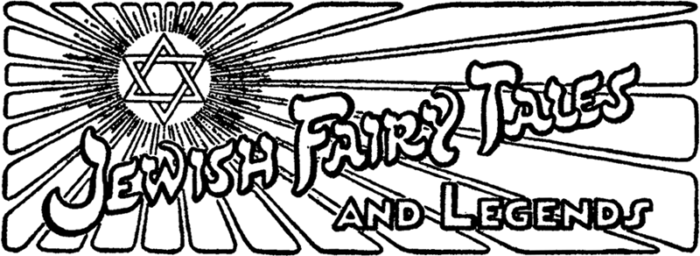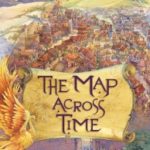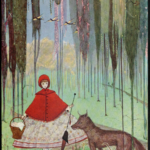Four Classes
At the beginning of the summer, I was looking for a book of fairy tales to read, ideally one that included stories on which no Disney film has been based. I found Gertrude Landa’s Jewish Fairy Tales and Legends, and I was enchanted.
 This collection is charmingly fanciful, and at times playfully absurd. It is, moreover, unique in the different flavors of fairy tale it offers. The book is admirably broad-minded in its inspiration, drawing from Scripture and history and legend. I am going to briefly sum up the four classes of fairy tale in this book, prefaced by two observations. One of these is positive, and the other less so.
This collection is charmingly fanciful, and at times playfully absurd. It is, moreover, unique in the different flavors of fairy tale it offers. The book is admirably broad-minded in its inspiration, drawing from Scripture and history and legend. I am going to briefly sum up the four classes of fairy tale in this book, prefaced by two observations. One of these is positive, and the other less so.
One, the book is unusually effective in merging religion with stories. I have tried to cipher out why the book succeeds as it does, and I think the fairy-tale form has a great deal to do with it. As fairy tales, these stories shrug off the burdens of detail and solemnity. They respect religion, yet treat it with lightness and frankness. This is certainly not the only way to treat religion, and probably not the best way, but it is an enjoyable way. Now, the second and negative observation: There is moral dissonance in the casual acceptance of slavery sometimes glimpsed in this book. It’s jarring, and in the most flagrant instance downright chilling.
And onto the four classes:
Secular. Although most of the fairy tales in this collection are religious to some degree, a minority makes nothing of religion, one way or another. Among these are some of the more lackluster offerings, such as “The Red Slipper” and “Abi Fressah’s Feast”. But this minority also includes the superior “The Princess in the Tower”, which is at once the most democratic and most effectively humorous tale in the collection.
Biblical. I use here a narrow definition to cover only those stories directly based on biblical narrative. Of course, directly based can still be loosely based, as many a Hollywood film has demonstrated. These are not Sunday-school stories. They only involve Sunday-school characters, drawing them out from the Bible and into a world of fancy. Thus Pharaoh suffers somewhat whimsically in “The Higgledy-Piggledy Palace” and David rides a unicorn in “From Shepherd-Boy to King”. Minor figures in Scripture are granted starring roles, though not to any glory. In “The Paradise in the Sea”, Hiram grows convinced of his own immortality – and deity.
Religious. Truthfully, most of the book could come under this heading. I use it in order to group the fairy tales that invoke religion without pirating the Bible. A representative example of this is the prophesying rabbi of “King for Three Days”. “The Rabbi’s Bogey-Man” is a more compelling instance, and the most imaginative is found in the synagogue in the heart of Ergetz, the land of demons, djinns, and fairies – for, it is explained, they also have all manner of religions. This tale, “The Fairy Princess of Ergetz”, is the best in the category and possibly the best in the book. In all these stories, there is no self-consciousness about religion, no sense of argument or defense. It simply is, like the sky.
Historical. A handful of the fairy tales play out in quasi-historical settings. “The Palace in the Clouds” occurs somewhat vaguely in Assyria; “The Pope’s Game of Chess” occurs much more definitely in Germany. But not too definitely. These are still fairy tales, and history is a source of invention rather than strict facts. “King Alexander’s Adventures” is the most striking example of the historical fairy tale, not least because in it, history so dizzingly meets religion and myth.










































Very cool. I want these fairy tales!
The link is to it on the gutenberg website. Jewish fairy tales are such a TRIP.